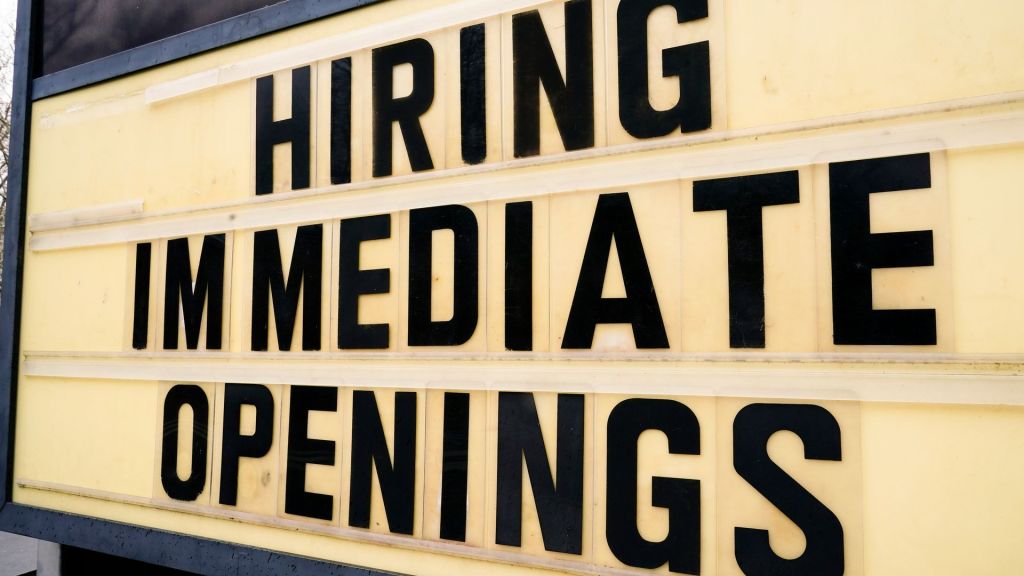Commentary
-
Our commentary partners will help you reach your own conclusions on complex topics.
Since welfare reform in the 1990s, our safety net has relied on a combination of work requirements and generous government supports to help struggling families move up. This has led to an enormous reduction in material hardship.
According to research by University of Chicago economist Bruce D. Meyer, the percentage of American children living in poverty is now less than 5%, down from over 16% before welfare reform.
This past year’s COVID-19 pandemic put that approach to the test, forcing millions of Americans out of work. This sudden loss of employment caused by the shutdowns required extraordinary but temporary actions—which occurred.
And I’m glad to say that America’s government rose to meet this unprecedented challenge.
Our nation’s response, most of which happened with bipartisan support during the final year of President Trump’s administration, kept millions of Americans from falling into poverty.
The Paycheck Protection Program, enhanced unemployment benefits, expanded food benefits, and direct stimulus payments, kept millions of Americans out of poverty, during a time where there was a sudden shortage of jobs. For many of those near the bottom, their incomes actually increased as a result of pandemic aid.
Of course, these measures incurred enormous costs, but they were necessary in the short term, until the pandemic subsided and jobs came back.
And now, that recovery appears well underway, with rising employment and renewed economic growth, emergency benefits are no longer necessary.
As our economy recovers, our safety net should also return to the way it was before the crisis. In a world where jobs are available — and plentiful! — we do not need enormous benefits flowing to non-working, able-bodied adults.
But some policy experts have identified the crisis as an opportunity to “reboot” or “recalibrate” American welfare policy. By this, they mean to get rid of the work-based welfare reforms that have lifted so many Americans out of poverty.
And politicians such as President Joe Biden, Senate Majority Leader Chuck Schumer, and Speaker Nancy Pelosi have been listening to them.
Despite all signs pointing toward a record recovery, the Democrat-controlled Congress approved another large stimulus package this past March. This stimulus included more direct cash payments and an expanded child tax credit that is being sent to families with no strings attached: no work requirements or required involvement with local social workers who could help address underlying issues such as substance abuse or father absence.
Now, they are proposing is to make these emergency programs permanent, with a $3.5 trillion reconciliation package aimed at overhauling our safety net and undermining the bipartisan welfare reforms of the 1990s.
Their proposed reforms are unnecessary and potentially harmful. The new Child Tax Credit disregards the importance of work as the basis for cash benefits. That will inevitably erode the gains we’ve made, particularly in the labor force participation of never-married single mothers.
Now that jobs are plentiful and the economy is back on track, we should be helping low-income Americans get the skills and find the opportunities they need to move up, not throwing money at a problem that our safety net has largely solved.
To summarize: our combination of a focus on employment and generous government support for low-income Americans led to dramatic declines in poverty among all Americans and their children.
The pandemic disrupted this approach and required an extraordinary response. A dramatic increase in emergency benefits worked to distribute support and reduce the economic harm that would have resulted from the economic disaster that COVID-19 caused.
But looking ahead, our successful response to the COVID-19 crisis may cause us to forget the lessons we learned before the pandemic and undermine our focus on work—leading, I am afraid, in the long term to less employment, lower earnings and, as a result, higher poverty rates. Government transfers and benefits, without earnings from work or attention to underlying issues, will not help people escape poverty.
-
Affirmative action ruling consistent with struggle against US racist past
When the Supreme Court struck down affirmative action programs at the University of North Carolina and Harvard, conservatives celebrated the decision, hailing it as a victory for a “colorblind” interpretation of the Constitution. Former President Donald Trump praised the ruling as a “great day for America.” Democrats, on the other hand, criticized the decision, arguing…
-
End of pandemic SNAP benefits a chance to improve food program
Millions of struggling American families in 32 states are now receiving less federal aid to buy food as the emergency funding for the SNAP food stamps program has expired. The emergency allotment, spurred by the COVID-19 outbreak, boosted the money that recipients received by at least $95 per month from SNAP, which stands for “supplemental…
-
Census data paints an inaccurate picture of inequality in America
The U.S. Census Bureau is a nonpartisan government agency, responsible for not only determining how many representatives each state will have in Congress for the next 10 years, but also for collecting income data. By asking about income, the Bureau’s intent is to “help communities enroll eligible families in programs designed to assist them.” But…
-
Elites have lost the trust and confidence of Americans
The Cambridge Dictionary defines the liberal elite as “a group of people with education, money, and other advantages, often living in cities, who have liberal political views and are seen as not understanding the problems and views of ordinary people.” Former President Donald Trump’s war on elites was central to his 2016 campaign and could be weaponized again should he run in 2024. Straight Arrow News…
-
American men need to start taking more personal responsibility
Some members of the Republican party, such as former President Donald Trump and Sen. Josh Hawley (R-MO), blame Democrats for starting a war against American men. These voices want government action taken to protect men from policies meant to undermine their roles in society. But is government intervention really the answer? Straight Arrow News contributor Robert…
Latest Opinions
-
 Getty Images
Getty Images
Chinese hackers target US infrastructure with new persistence
-
 Getty Images
Getty Images
What Senate rules say about dismissing Mayorkas impeachment
-
 Reuters
Reuters
USPS asks for billions more in aid 2 years after getting $107B
-
 Getty Images
Getty Images
France says it has contingency plans as Olympics security questions arise
-
 Getty Images
Getty Images
Biden admin deal will give $6.4B to Samsung to boost chip production
Popular Opinions
-
In addition to the facts, we believe it’s vital to hear perspectives from all sides of the political spectrum.


